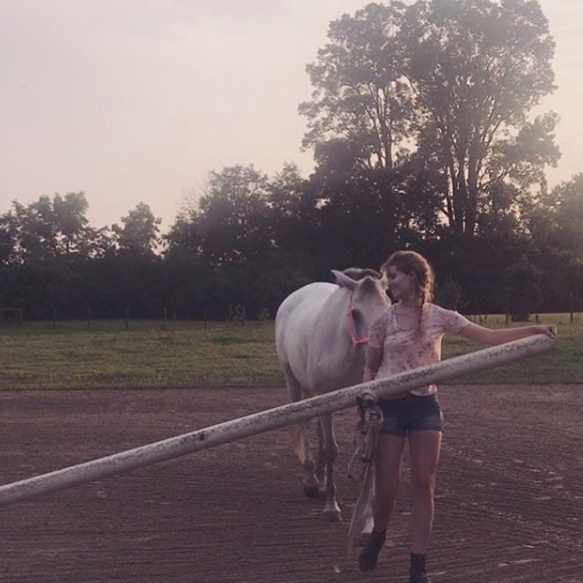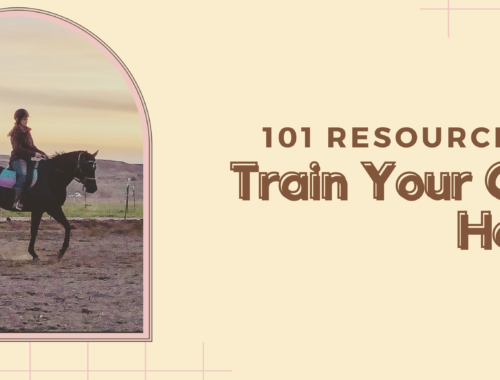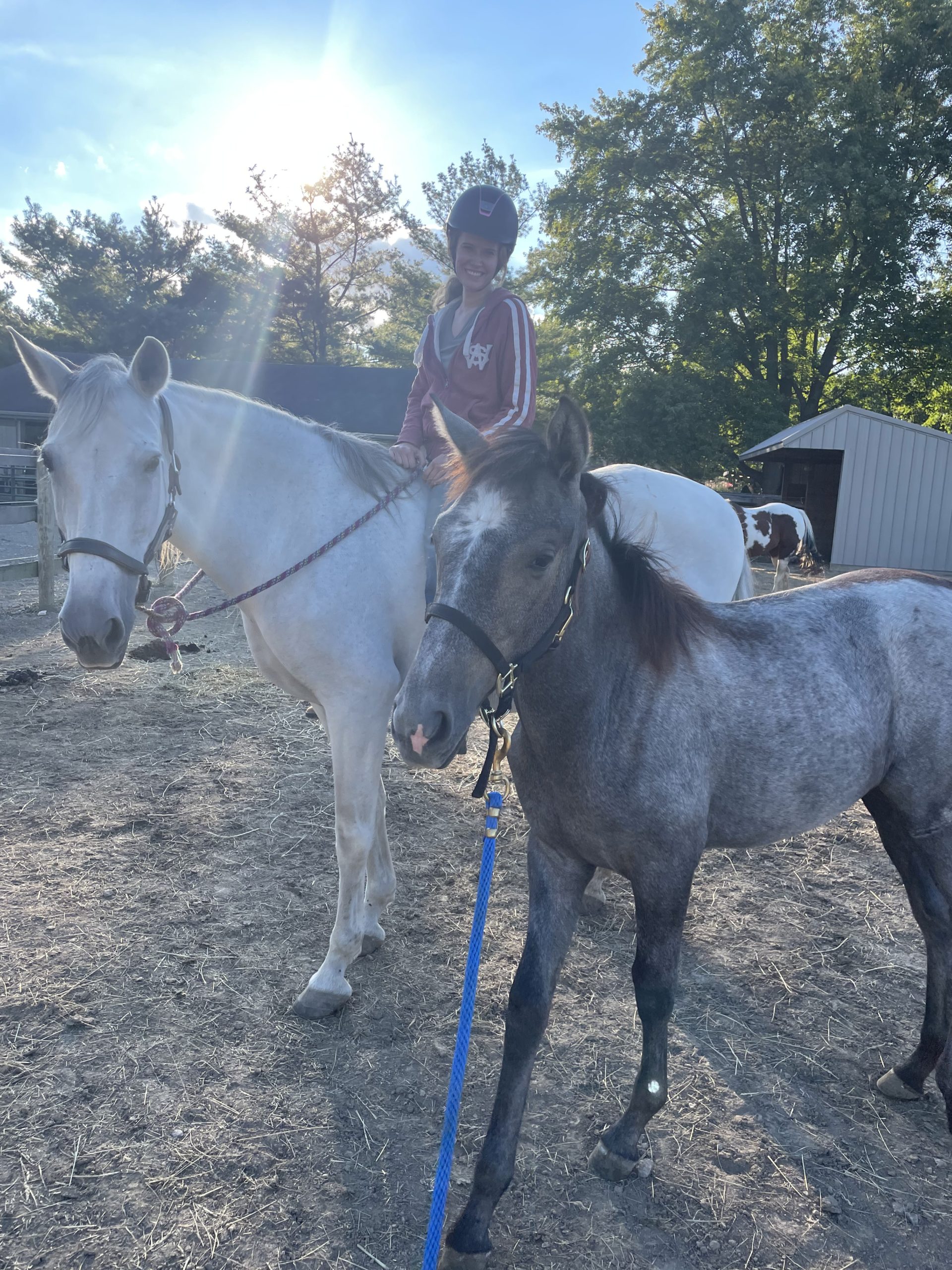How to set expectations with your horse: personal reflections

Has anyone ever told you that your horse is your mirror? Into your soul, your mind… that they can read our minds & know us better than we might know ourselves? I’ve certainly been told this, and most of the time it feels true. Somehow Valaria seems to be inside my mind, able to read my emotions, sometimes before I am even fully aware of them. However this is a heavy burden to put on another living being, animal or human. To expect a horse (or if you prefer, partner, dog, friend, etc.) to always be on the same wavelength as us, to be our mirror… It’s a dangerous expectation.
A little story about this. I went out to see Valaria (Aria) the other night, as I almost always do in the evenings. This time of year is hard for us, between school & crappy weather our resources are much more limited. Unfortunately due to the set up of the property she, & the other horses depend on us for 90% of their movement. Thanks to mud and limited pasture they don’t have access to 24/7 turnout, instead spending time in dry lots, which while better than stalls, are not ideal. Anyways. I went out to see Aria & I was getting increasingly frustrated with her during our session. She seemed to be reverting to a lot of her “old” behaviors, & I was getting mad. I had come to the barn with the expectation of her as my mirror- she should reflect what I was feeling. “I’ve been doing so well lately, why is she acting like this?!” I thought, believing that we should always be connected, always be on the same page.
In my mind, because my own behaviors and life had been on an upward swing then by default our training should be as well. But when I took a moment to step back & think about it I realized. In the last couple of days I’ve gone to work, school, seen my boyfriend, had a variety of experiences… In short I had taken care of all my needs, be they physical, social, or emotional. Aria doesn’t have that luxury. While most of her needs are met, for food, companionship, water, some movement- she is not autonomous. Would I love to give it to her? Yes, of course. But our situation doesn’t fit that right now. Therefore it is up to me, as a responsible horse person to do my best to fill in, regardless of where I perceive my own needs to be at that moment.
So what needs of hers have I not been meeting that might be pushing her over the edge? Movement. She needed to move, away from me, on her own, as a horse. So I let her go. I watched her rip snort around the arena for about 20 minutes, until she calmed down & could seek me out, on her own terms, her needs met before mine. We ended up having a really nice session, once I was able to take a step back and remind myself of a critical component of modern horse interactions.
In “owning” a horse we have taken away their agency- their ability to do as they please, to act as they want, when they want. And while I will be the first person to dive into the healing benefits of horses and their ability to teach us about ourselves, this healing has come at a price for horses. So when we ask our horses to be our mirrors we must also ask ourselves to mirror them. How would we feel in their situation? What might be missing at this moment? Like all relationships the equine-horse one requires two way communication and a realistic set of expectations. So I propose a change in verbage. What if, instead of saying our horses were our mirrors we called them a window? A window into feelings we might not be able to express yet, but also a window into their lives, their emotions, their feelings. A window we are both looking through.
This is Me
The Power of "and"
You May Also Like

101 Resources to Train Your Own Horse
February 28, 2022